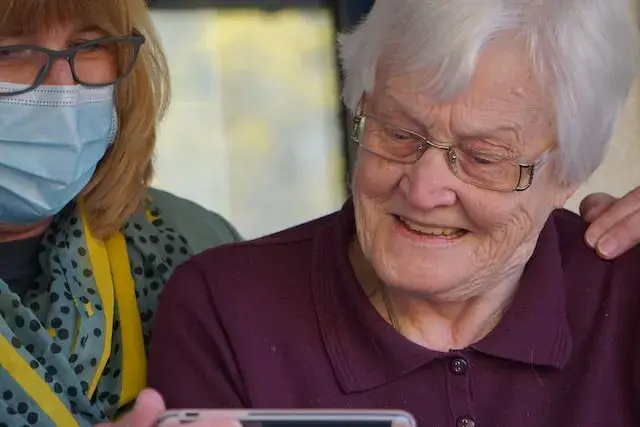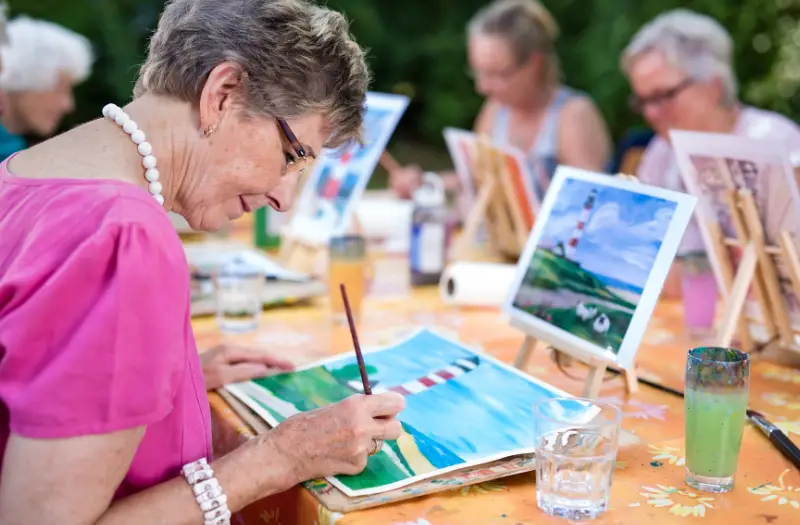Caring for a loved one who is in the final stages of life is a profound and challenging experience that requires both emotional resilience and practical understanding. In these delicate moments, providing comfort, dignity, and love becomes paramount. This guide aims to offer practical advice on how to care for a dying loved one while maintaining a compassionate and supportive environment.
For families in Wilmington, NC, Age in Place Home Care Services offers compassionate care and support to ensure your loved one receives the highest quality of life during this sensitive time.

Understanding the Emotional Landscape
In the face of impending loss, it is crucial to acknowledge and understand the emotional challenges both you and your loved one are likely experiencing. Grieving Process and Acceptance are vital components during this time. Acceptance does not signify giving up but rather embracing the reality of the situation and making the most of the time left.
Open Communication and Honesty
Encourage Honest Conversations:
Open communication is key when caring for someone at the end of life. Encourage your loved one to express their feelings, fears, and wishes. Be an active listener, providing a safe space for them to share their thoughts without judgment.
Establishing a Supportive Environment
Create a Comfortable Space: Ensure the physical environment is tailored to your loved one’s comfort. This may include adjusting lighting, temperature, and having familiar objects nearby. Make their living space a haven of peace and tranquility.
Provide Emotional Support: Being there emotionally is as important as providing physical care. Offer a comforting presence, hold hands, and share memories. Sometimes, the silent company can be incredibly reassuring.
Attending to Physical Needs
Pain Management: Consult with healthcare professionals to ensure your loved one’s pain is effectively managed. Palliative care specialists can provide invaluable support in this aspect, tailoring solutions to the individual’s needs.
Assist with Daily Activities: As their physical capabilities diminish, assist with daily tasks such as bathing, dressing, and eating. This not only ensures their physical well-being but also fosters a sense of dignity.
Nourishment and Hydration
Adapt Nutritional Intake: Consult with healthcare providers to determine appropriate dietary adjustments. In some cases, the focus may shift from traditional meals to smaller, more frequent snacks. Hydration is essential, and alternative methods like moistening the mouth or providing ice chips may be necessary.
Embrace the Power of Touch: Physical touch, such as gentle massages or simply holding hands, can offer immense comfort. It fosters a sense of connection and reassurance that transcends verbal communication.
Practical Considerations and Planning
Legal and Financial Matters: Assist your loved one in sorting out legal and financial affairs, such as wills and end-of-life directives. This not only provides a sense of control but also ensures their wishes are respected.
Funeral and Memorial Plans: Initiate conversations about funeral and memorial preferences. While these discussions may be challenging, having a clear understanding of your loved one’s wishes can alleviate stress during an already emotionally taxing time.
Self-Care for Caregivers
In the midst of caring for a dying loved one, it is easy for caregivers to neglect their own well-being.
Prioritize Self-Care by seeking support from friends, family, or professional counselors. Understand that it’s okay to ask for help and take breaks to recharge emotionally and physically.
Accessing Compassionate End-of-Life Home Care Support
As we mentioned above it is easy for family caregivers to neglect themselves. Often times family caregivers risk their own health as they try to do everting they can for their loved one.
It is important to take the time to spend your last moments together in your true roles. That of a loving husband, wife, son or daughter.
Allow fiends and family to support you, and call in compassionate and professional care team to help you and your loved one transition. Age in Place is here for you.
Conclusion:
Caring for a loved one at the end of life is a sacred and emotionally intense journey. By understanding the emotional landscape, fostering open communication, attending to physical needs, and addressing practical considerations, caregivers can provide a supportive and compassionate environment. Ultimately, the key is to embrace each moment, offering love and comfort as you navigate this challenging but meaningful chapter together.



